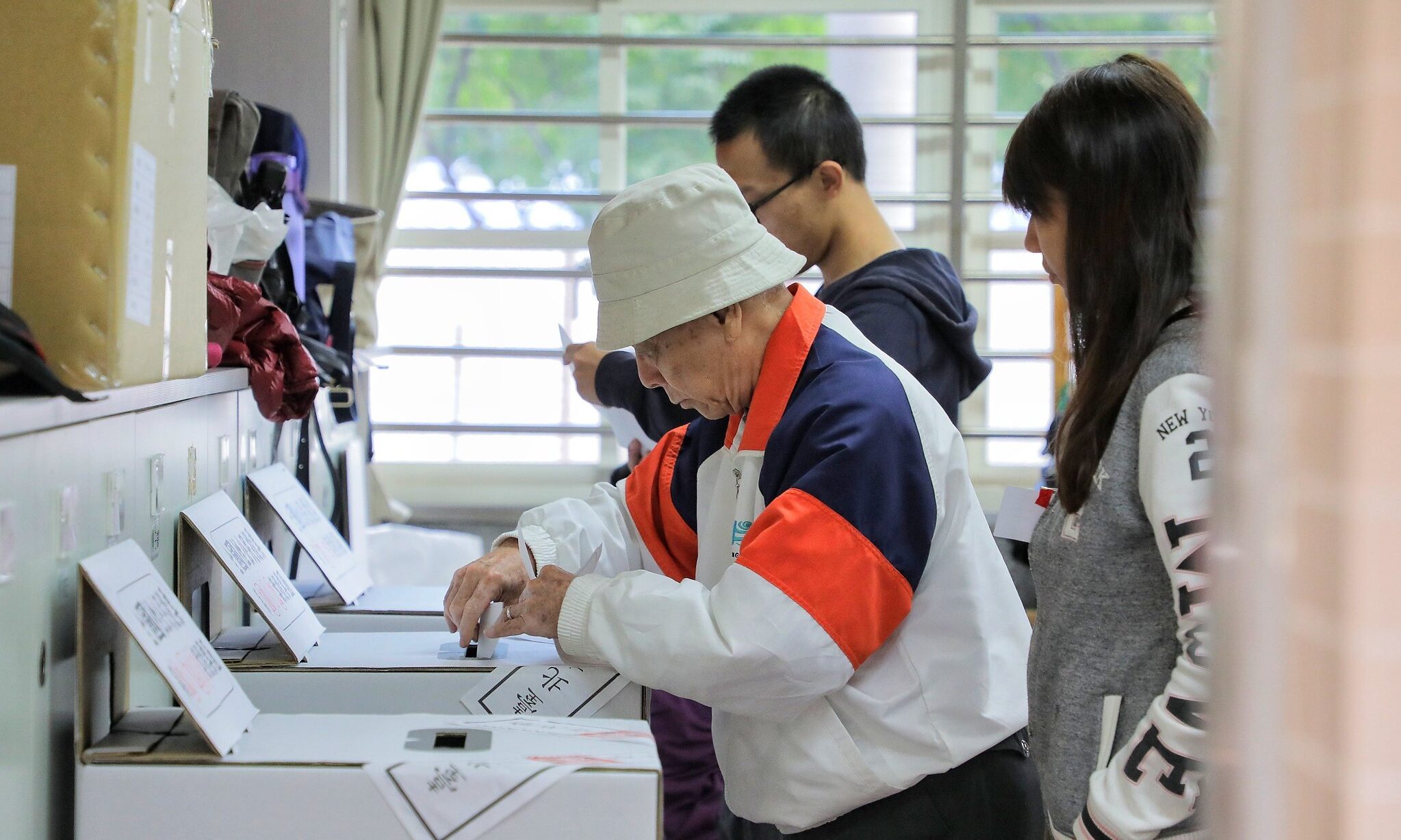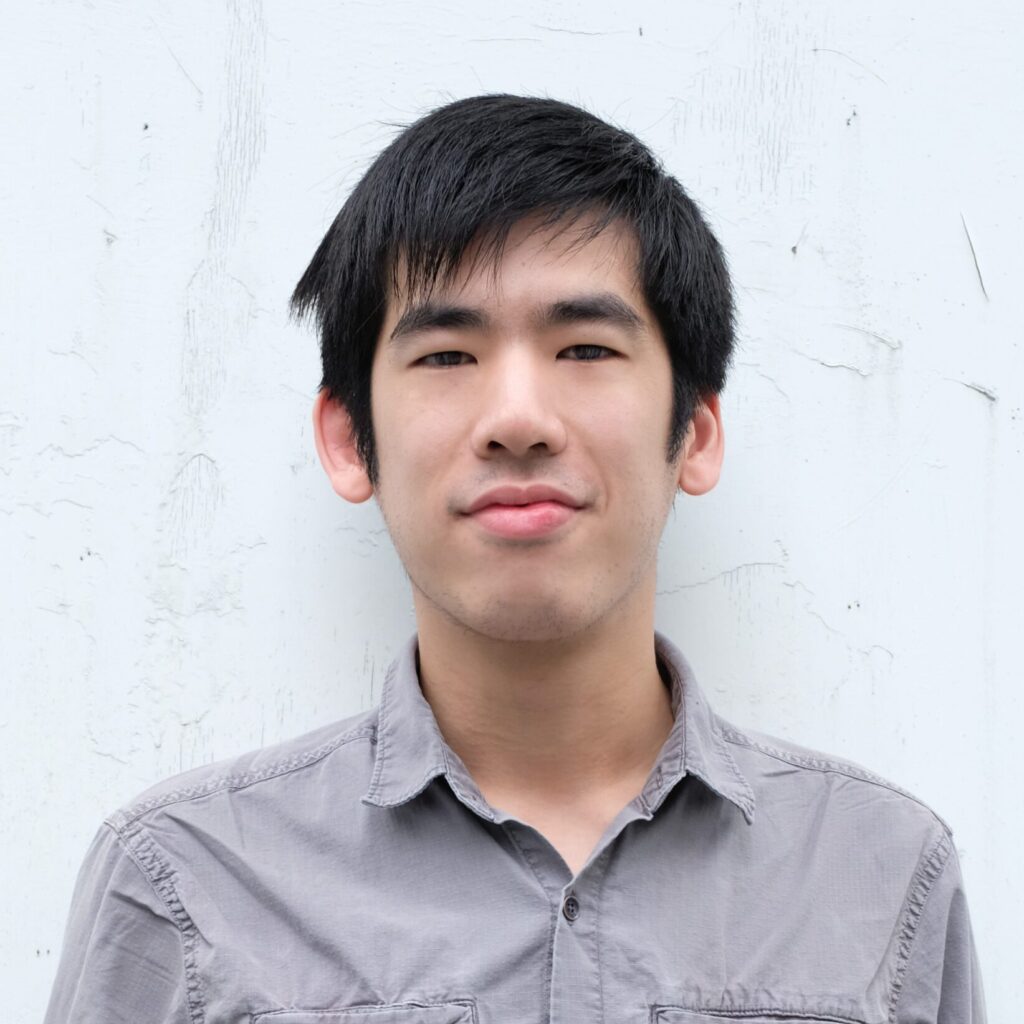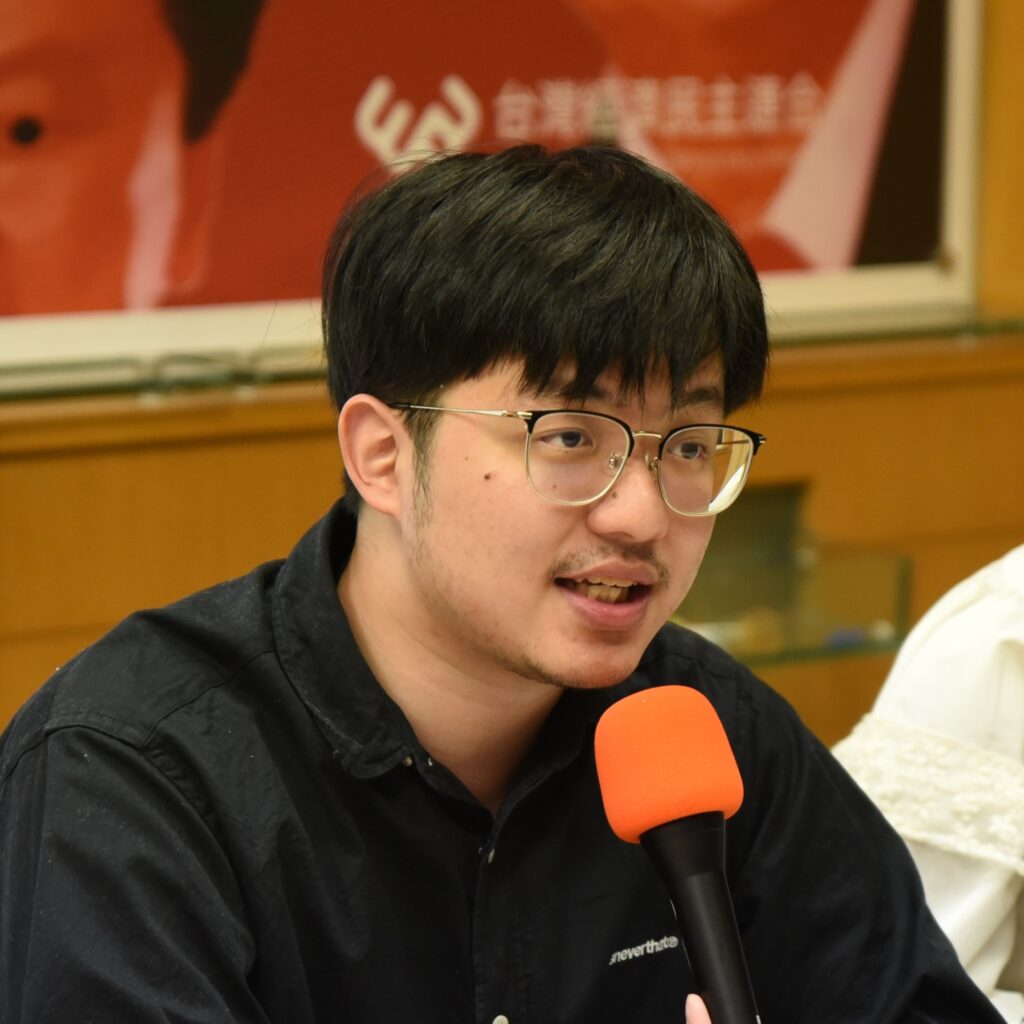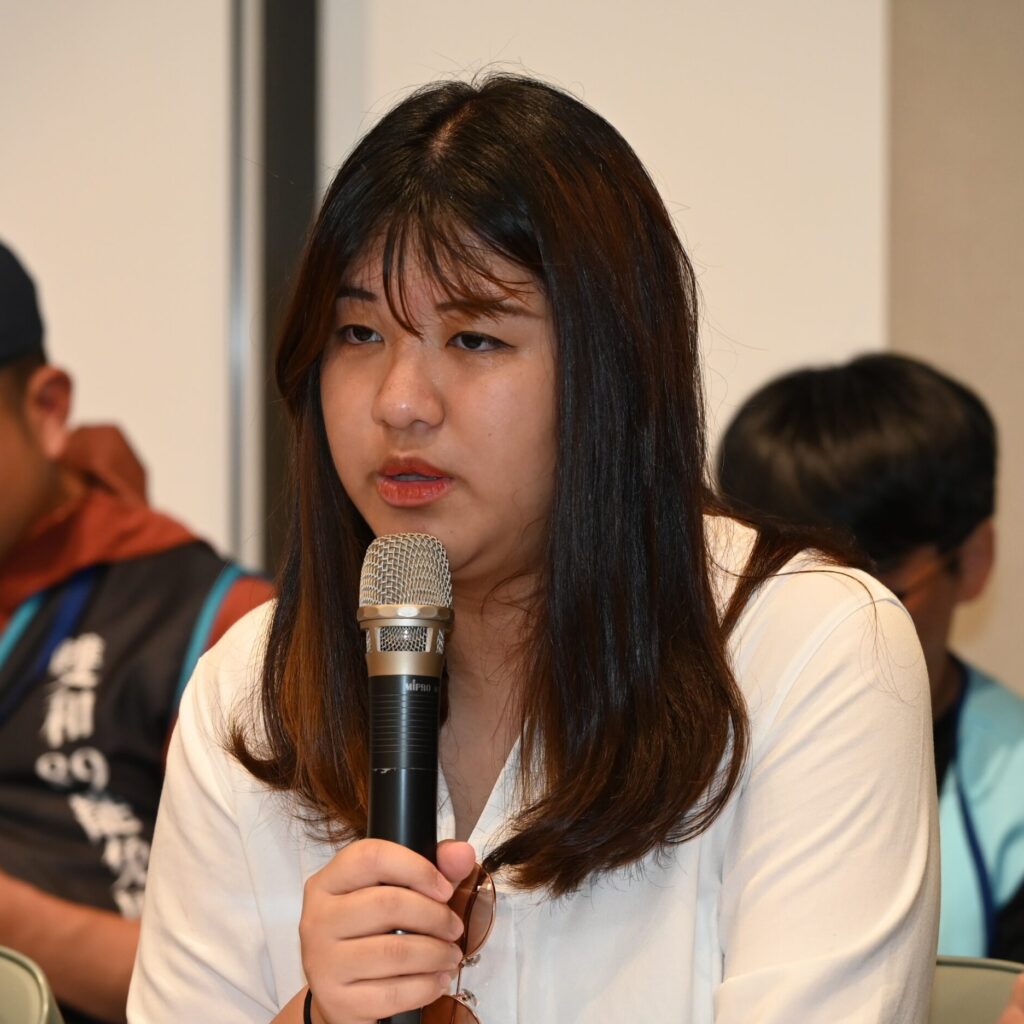The Great Recall: Democratic Progress or Political Paralysis?

Following the 2024 presidential and legislative elections, the Democratic Progressive Party (DPP) retained the presidency, while a pan-Blue camp composed of the Kuomintang (KMT) and the Taiwan People’s Party (TPP) secured a slim majority in the Legislative Yuan – Taiwan’s parliament. Soon thereafter, the KMT and TPP began advancing controversial amendments to several laws, including legislation at the center of the current political unrests such as the Public Officials Election and Recall Act, the Constitutional Court Procedure Act, and the Act Governing the Allocation of Government Revenues and Expenditures. Last summer, these proposed amendments sparked nationwide protests dubbed the “Bluebird Movement,” which many have compared to Taiwan’s most well-known case of civil disobedience: the 2014 “Sunflower Movement.”
The ongoing “Great Recall Movement” – also known as the “Grand Recall Movement” – can arguably be seen as the latest expression of public discontent with the KMT-TPP-controlled legislature, though the involvement of the ruling DPP has raised significant concerns about how recall mechanisms are being used in Taiwan today. A total of 24 KMT lawmakers are facing recall votes on July 26, with another seven up for recall on August 23 – making this the largest recall campaign in Taiwan’s history.
In light of these developments, we spoke with several analysts from Central and Eastern Europe and Taiwan to discuss whether the current wave of recall campaigns represents democratic resilience or democratic backsliding in Taiwan.

Dominika Remžová
China Analyst at the Association for International Affairs (AMO)
The current wave of recalls is aimed primarily at the KMT, reflecting growing public disillusionment with a party that appears increasingly out of touch with public sentiment – particularly among younger voters. TPP legislators are not subject to recall, as they were elected through the party-list system, and Taiwan’s recall mechanism applies only to district-level legislators. While the KMT attempted to launch its own recall campaigns against DPP lawmakers, these efforts failed.
At the same time, it is important to note that although the mobilization efforts have been largely bottom-up, the initial calls came from the DPP – specifically from DPP caucus leader Ker Chien-ming, who publicly advocated for a large-scale recall of KMT district legislators. This highlights the close relationship between the DPP and certain NGOs, undermining the government’s claim that the campaign is entirely driven by civil society. In contrast to the Bluebird Movement, which was widely seen as a grassroots initiative, the Great Recall cannot be considered wholly bottom-up, with several scholars (both inside and outside Taiwan) questioning the legitimacy of the campaign. This is mainly due to the DPP’s involvement, which blurs the line between civic activism and party politics – a major concern given that recall mechanisms are intended as civic, not partisan, tools.
Besides concerns about the DPP’s instrumentalization of the recall process for power politics, scholars have also raised doubts about the substantive basis of many of these recall efforts, which appear to be driven by political grievances rather than responding to ethical misconduct. Ironically, the KMT’s own recall campaign – undermined by a forgery scandal – further illustrates the dangers of manipulating recall procedures for partisan ends. Most importantly, however, there are growing concerns that politicizing recall mechanisms may encourage populist tactics at the expense of long-term policy leadership, while deepening political polarization and exacerbating social divisions. This has already been evidenced in attacks on campaigners and heightened tensions across party lines. Some scholars go as far as questioning whether any autonomous demands from civil society remain, with the DPP’s own roots in social movements and its previous connection to Taiwan’s “third force” – especially movement parties that gained and subsequently lost power in the aftermath of the Sunflower Movement – making these entanglements difficult to disentangle.
A recall campaign targeting multiple legislators at once is unprecedented – not only in Taiwan’s democratic history but also globally. Recall mechanisms are rarely used on such a scale, in part because the thresholds for initiating them are typically difficult to meet. Moreover, the recalls may not alter the balance of power since by-elections could simply return KMT candidates to office.
This, of course, does not negate the right of civil society to initiate recall proceedings, nor does it diminish the strength and importance of Taiwan’s social movements. Rather, the point here is to play devil’s advocate and raise critical questions about the long-term implications of the Great Recall for Taiwan’s political stability and democratic future.

Founding Editor of New Bloom
Taiwan is currently in the throes of the Great Recall Movement, an unprecedented event in the history of Taiwanese politics. Currently, efforts are underway to recall legislators from the KMT, historically the China-leaning party in Taiwanese politics. While the KMT failed to win the presidency for an unprecedented third consecutive time in the 2024 elections, it holds a slim majority in the legislature through its alliance with the TPP.
Public anger, stoked by KMT actions in the past two years, has fueled this wave of recalls. The most immediate trigger was the sweeping budget cuts enacted by the KMT earlier this year – reportedly the largest set of cuts in Taiwanese history, slashing 34 percent of the government’s operational budget. These included cuts of Taiwan’s defense budget at a time when the US has threatened to withdraw support for Taiwan if it does not increase its military expenditures. Beyond the budget, the KMT has pushed controversial initiatives seeking to shift security powers from the executive and judiciary to the legislature – the only branch of government it currently controls – and freeze the Constitutional Court to prevent Taiwan’s highest court from striking down any of its actions as unconstitutional. More generally, however, the KMT has alarmed the public since its actions were perceived as seeking to undermine the institutions of Taiwanese democracy in order to please Beijing.
For its part, the KMT has framed the recalls as “revenge recalls” – political retaliation from the pro-sovereignty DPP – as well as a means of undermining democracy. Though the KMT is widely considered the pro-China party in Taiwan, with its party officials conducting routine meetings with their counterparts in the Chinese Communist Party, the KMT has accused the DPP of seeking to enact “Green Communism” in its efforts to target political enemies. The KMT has leaned into such attacks, doubling down on this narrative, particularly after several local chapter heads faced charges of signature fraud in their own efforts to recall DPP legislators. In one memorable incident, KMT recall campaigner Sung Chien-liang appeared in court dressed in a Nazi uniform, carrying a copy of Mein Kampf, and was photographed making a Roman salute, in order to demonstrate what he framed as DPP authoritarianism. Even after condemnation from Germany’s and Israel’s diplomatic representatives in Taiwan, KMT chair Eric Chu was reluctant to apologize for Sung’s actions.
On the other hand, recall organizers have stressed that they are not part of the DPP, and that the movement is not orchestrated by the ruling party. Instead, they describe themselves as citizens angered by the KMT actions. The campaigners have also stressed that the right to recall is a fundamental constitutional right in Taiwan’s political system, which otherwise lacks mechanisms for the dissolution of the legislature and calls for snap elections that exist in other countries. For them, recall is an emergency mechanism meant to restore Taiwan’s democracy.
Still, much remains uncertain. It is to be seen how the public votes, with polling indicating mixed views, and the majority of votes scheduled to take place on July 26. And even if the DPP succeeds in recalling six legislators – the number needed to change the balance of power in the legislature – the party would still have to get six of its legislators elected in the by-election to fill the vacated seats.

Filip Noubel
China Analyst at the Association for International Affairs (AMO)
Taiwan is regularly rated as one of the most advanced democracies in Asia by international monitoring groups. However, it is currently experiencing a paralysis of some of its key democratic institutions. This includes the Supreme Court, which is now missing a member following several retirements, and the parliament, which has witnessed physical altercations in recent months. Political polarization of Taiwan’s society is deepening, with each side – the opposition KMT and the ruling DPP – blaming the other for the stalemate and for destroying the social fabric at a time of escalating threats from China.
In a bid to regain control of the Legislative Yuan, and thereby pass legislation favored by the party, the ruling DPP has decided to launch a wave of recall elections targeting opposition MPs. The KMT, which holds a de facto majority due to its alliance with the Taiwan People’s Party, has also pursued its own recall efforts against select DPP lawmakers. However, some of these moves have involved forged documents, further fueling accusations of unfair tactics.
Altogether, 31 KMT lawmakers are facing recall in the 113-seat legislature. A recall vote is only considered successful if at least a quarter of eligible voters support the new candidate, and this number exceeds the number of those voting against that candidate. The elections are scheduled for July 26 and August 23.
And while recalls may seem like a procedural matter, they have never been used on such a large scale before. In the past, they emerged mostly as local initiatives, but today they have overtones of political witch hunts weaponized by the two dominant parties. In the DPP camp, the general accusation is that the KMT is blocking the passing of budgets essential to Taiwan’s security, which is often extended to accusations of facilitating China’s growing political and economic influence over Taiwan – possibly paving the way for future military control. The KMT, in turn, accuses the DPP of staging a “coup,” imposing authoritarian rule, and, in one extreme case, exhibiting “Nazi behavior” – a reflection of how personal and hostile the process has become.
Though outcomes remain uncertain, the use of recall elections at such a large scale could have three negative consequences for Taiwan. First, it erodes trust in political institutions, particularly at the local level. Second, deploying recalls on this scale sets a dangerous precedent by opening the possibility of this mechanism to be routinely used by parties to counter the results of presidential elections, with the next one looming in 2028. This reflects a broader failure to engage in cross-party negotiations on essential issues that should transcend party lines like justice, budgets, and national security, which could, in effect, discourage younger generations from participating in future elections – especially if they come to see Taiwan’s political scene as “too dirty.”
Third, the ongoing recalls signal a growing inwardness in Taiwanese politics at a time when international engagement is more crucial for the economy and security of this country than ever before. Relations with the United States, for example, are highly unpredictable – complicated by tariff wars and the possibility of future shifts in US foreign policy under Trump. Taiwan’s leaders should, thus, dedicate more energy to cultivating diverse alliances abroad, especially in the face of mounting threats from China.


Steven Cheng-Han Huang and Ssu-yu Chen
Research Fellows at the Taiwan Economic Democracy Union (TEDU)
Taiwan’s democratic landscape is currently undergoing a critical test, marked by the emergence of the Grand Recall Movement. This widespread civic action is a direct response to what many Taiwanese citizens perceive as a deliberate undermining of legislative integrity and national security by a newly formed opposition alliance.
Merely two months into their term, in April 2024, 17 Kuomintang legislators met with Wang Huning, Chairman of the Chinese People’s Political Consultative Conference (CPPCC) in Beijing. Within a year of their return, the KMT, in alliance with the Taiwan People’s Party, formed a majority opposition bloc in the Legislative Yuan and subsequently pushed through motions to cut NT$8 billion from the national defense budget, freeze an additional NT$90 billion, and pass numerous other controversial bills – actions widely criticized as attempts to undermine Taiwan from within. In response, tens of thousands of citizens took to the streets to protest the growing disorder within the legislature, laying the groundwork for the Grand Recall movement in 2025.
At the heart of this legislative turmoil is the “Fu-Huang system,” a quasi-authoritarian power structure led by the KMT’s Fu Kun-chi and the TPP’s Huang Kuo-chang. Fu, with extensive political and economic ties to pro-China networks, and Huang, driven by long-standing personal vendettas against the ruling Democratic Progressive Party, now serve as caucus leaders for their respective parties. Their alliance has consolidated a new center of legislative control, one that routinely bypasses genuine multi-party deliberation.
Under this system, Taiwan’s legislative process has become little more than a façade, with legislation often pushed through abruptly and with minimal debate, including last-minute “amendments” printed and voted on within minutes. In some extreme cases, opposition legislators have been physically blocked from entering the chamber, effectively barred from participating in key votes. Critical bills concerning national security, defense, and even fundamental democratic safeguards have been stalled, obstructed, or rewritten in ways that appear to align with the interests of the Chinese Communist Party. Against this backdrop, supporters of the movement view the sweeping recall campaign not merely as political retribution, but as a crucial form of democratic correction – a midterm reset designed to restore procedural legitimacy and legislative accountability.
The Grand Recall also reflects a broader pattern of civic resistance aimed at confronting the structural legacies of authoritarianism. The KMT remains an unreformed authoritarian successor party within Taiwan’s political system, retaining much of the organizational capital, patronage networks, and elite access it accumulated under one-party rule. Throughout the democratization process, the KMT maintained its electoral strength through clientelist mobilization and factional alliances, without meaningful efforts toward transitional justice or internal democratization.
More recently, the party’s growing alignment with the Chinese Communist Party has sparked serious concerns that it now operates as an internal vehicle for Beijing’s political influence operations. When an opposition bloc not only obstructs essential fiscal budgets and key national legislation, but also appears to undermine the constitutional order and collaborate with an external authoritarian regime, it inevitably provokes democratic backlash from the grassroots. Viewed in this light, Taiwan’s Grand Recall Movement can be seen as a bottom-up civic strategy aimed at dismantling residual authoritarian structures and defending national sovereignty. Crucially, it seeks to achieve this through democratic means rather than authoritarian imitation.

Marcin Jerzewski
Head of Taiwan Office of the European Values Center for Security Policy & Fellow at Visegrad Insight
The Grand Recall Movement is nothing short of a grand democratic experiment. Taiwanese voters will soon head to the polls to make use of a largely unsung referendum instrument in an attempt to break the political impasse fueled by ineffective cohabitation between the blue-camp dominated legislature and the DPP government. This deadlock has been further exacerbated by the former’s efforts to dismantle the mechanisms of horizontal accountability that underpin Taiwan’s democratic system.
On the one hand, the large-scale, bottom-up mobilization of recall campaigners can be understood as a positive manifestation of Taiwanese society’s democratic maturity and citizens’ awareness of both internal and external threats to political accountability. Even though some DPP politicians – notably minority whip Ker Chien-ming – have advocated for mass recalls, the mobilization remains at a grassroots level, highlighting Taiwan’s resilience in an era marked by global proliferation of political apathy.
On the other hand, even if campaigners succeed in weakening the KMT-TPP bloc’s dominance in the legislature, it may be a pyrrhic victory if it leads to deeper polarization and growing distrust in democratic processes and institutions. These societal cleavages would be a gift on a silver platter to the United Front, which favors a “divide and conquer” approach as its primary tool of influence.
It is also imperative to consider the potential effects of the Great Recall movement on Taiwan’s international reputation. Even though the incumbent foreign minister Lin Chia-lung’s “integrated diplomacy” approach puts a stronger emphasis on pragmatic foreign policy over the values-based approach of his predecessor Joseph Wu, democratic values remain a central component of Taiwanese soft power. Consequently, it is imperative that those involved in the recall campaigns clearly signal to Taiwan’s overseas partners that the movement is a legitimate, bottom-up mobilization and democratic exercise – an invocation of a constitutional right, rather than a partisan fight informed by an immature political culture that proscribes cohabitation.
However, the decentralized, grassroots nature of the recall campaigns aimed at unseating the KMT legislators has weakened their ability to focus on external strategic communications surrounding the recalls. These groups have been effective in communicating with their local constituencies, including through their effective get-out-the-vote campaigns like the Taiwan Action film series. Yet, they failed to construct a coherent narrative for international audiences. In contrast, contesting voices from the KMT have managed to craft and amplify a more cohesive message, accusing their pan-green opponents of undermining Taiwanese democracy. As a result, international discourse surrounding the Grand Recall Movement remains highly unbalanced and skewed in favor of the blue camp’s framing.
Consequently, what matters more than the immediate outcome of the first wave of recall votes on July 26 and August 23 is what comes after. To what extent will the DPP-led government and civil society actors be able to combat polarization in Taiwanese society? If the DPP gains – even temporarily – a legislative majority, will it succeed in strengthening weakened democratic institutions, notably the Judicial Yuan? And how will Taiwan demonstrate to its democratic partners abroad that it remains committed to safeguarding all three pillars of political accountability? These are the questions that should guide our future assessment of whether Taiwan’s grand democratic experiment has been successful.
Written by
CHOICE
CHOICE is a multinational consortium of experts providing informed analysis on the rising influence of the People’s Republic of China within the countries of Central and Eastern Europe (CEE).
Dominika Remžová
DominikaRemzovaDominika Remžová is a China Analyst at AMO, specializing in Chinese economy and industrial policy, supply chains, critical raw materials, electric vehicles and, more generally, Chinese foreign policy. In the past, she contributed to Taiwan Insight and The Diplomat, among others. Dominika is pursuing her PhD in Political Science and International Relations at the University of Nottingham. She earned her Master's degree in Taiwan Studies from the School of Oriental and African Studies (SOAS) in London and her Bachelor's degree in Chinese Studies from the University of Manchester.
Brian Hioe
brianhioeBrian Hioe (丘琦欣) is one of the founders of New Bloom Magazine (破土), an online magazine covering activism and youth politics in Taiwan and the Asia Pacific. He is a non-resident fellow at the University of Nottingham’s Taiwan Research Hub and is a member of the board of directors of the Taiwan Foreign Correspondents’ Club.
Filip Noubel
nasredinhojaFilip Noubel is Senior China Analyst at AMO, where he specializes in Chinese domestic politics and society and Cross-Strait (China-Taiwan) relations. He has more than three decades of research experience focusing on China. Filip has experiences as an analyst, commentator, journalist, interpreter and consultant for various organizations, including International Crisis Group, Institute of War and Peace Reporting, International Center for Communication Development, Global Voices, etc. Filip Noubel received the DEA (Diplôme d'Études Approfondies) at the National Institute of Oriental Languages and Cultures (INALCO) in Paris. He also studied at the Central University for Minorities in Beijing.
Steven Cheng-Han Huang
Steven Cheng-Han Huang is a Research Fellow at the Taiwan Economic Democracy Union (TEDU). The organisation’s mission is: Fight Against China's Aggression, Defend Taiwan's Democracy, and Build a New Nation.
Ssu-yu Chen
Ssu-yu Chen is a Research Fellow at the Taiwan Economic Democracy Union (TEDU). The organisation’s mission is: Fight Against China's Aggression, Defend Taiwan's Democracy, and Build a New Nation.
Marcin Jerzewski
yehaoqinMarcin Jerzewski is the Head of Taiwan Office of the European Values Center for Security Policy. He is also a Marcin Król Fellow at Visegrad Insight. Marcin earned his Bachelor of Arts in Political Science and Chinese Studies at the University of Richmond and was an MOE Taiwan Scholar in the International Master’s Program in International Studies, National Chengchi University.

